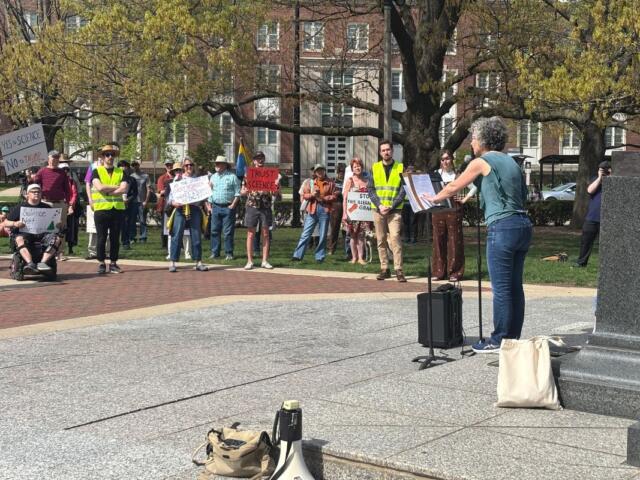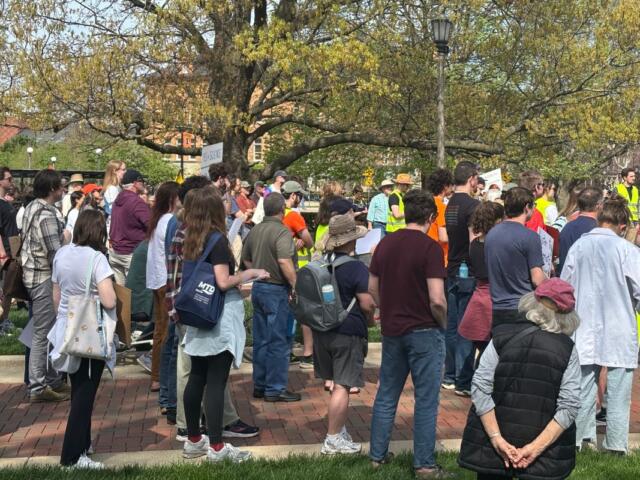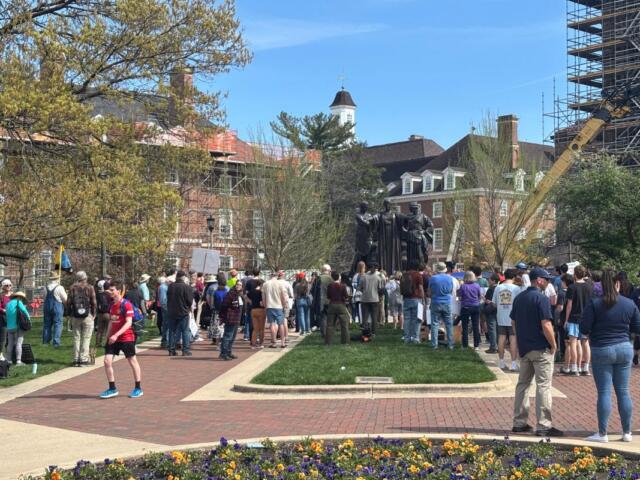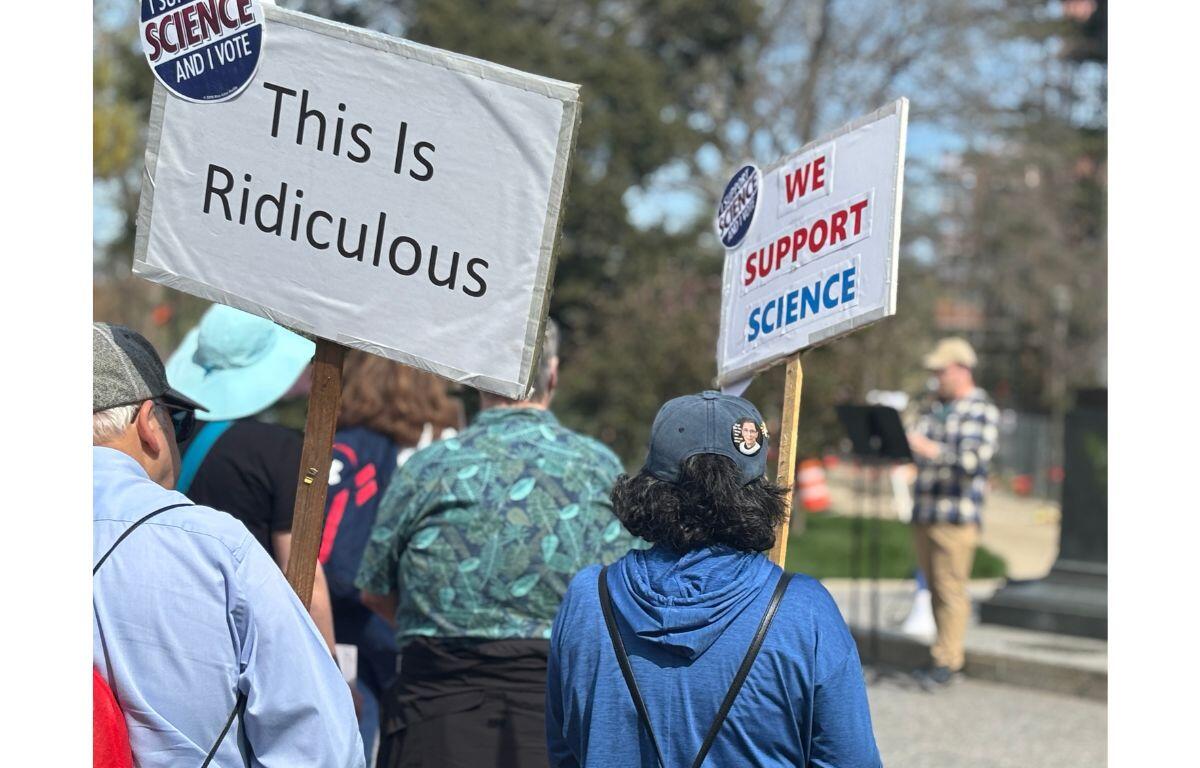CHAMPAIGN-URBANA, IL (Chambana Today) – On Earth Day, hundreds gathered in Urbana to participate in the March for Science and People’s Science Fair, bringing attention to the vital role of science in society and the impact of recent federal funding cuts.

The event began with a rally at the Alma Mater statue, where speakers shared personal stories and insights about how science affects public health, the environment, education, and the economy. Participants then marched down Green Street to Lincoln Square Mall, where the People’s Science Fair ran from 4 to 6 p.m.
Speakers at the March for Science:
- Julie Pryde, CU Public Health Administrator
- Rev. Leah Robberts-Mosser, Lead Pastor at Community United Church of Christ
- Joy O’Keefe, Wildlife Ecologist, University of Illinois Urbana-Champaign
- Scott Oswald, laid-off USDA Agricultural Research Service employee
“Science isn’t optional—it’s essential,” said Julie Pryde, Champaign-Urbana Public Health Administrator. “Whether it’s public health, clean water, or fighting climate change, science impacts all of us, every day.”

Event organizer Wendy Dorman, doctoral student at U. of I. and co-founder of Rise Up for Science, envisioned the science fair as a way for scientists and the public to interact and understand one another. “These scientists are here to share their science, their passion, and their dreams for a better tomorrow. If we come out of today energized and ready for the fight that is to come; if we come out of today a closer community, then we have achieved something great!”
The science fair featured hands-on exhibits and demonstrations on topics including bird banding, insect biodiversity, Illinois bat conservation, science advocacy, mental health, and wetland ecosystems. Families explored local forest preserves, learned about eco-emotions, and engaged with scientists and educators in a fun, educational setting.

The event served as both a celebration and a call to action. Organizers stressed that federally funded research supports nearly every part of modern life—from healthcare and food systems to technology and transportation. As federal science agencies face growing budget pressures and staffing cuts, events like this aim to raise awareness and inspire community involvement in science policy.


